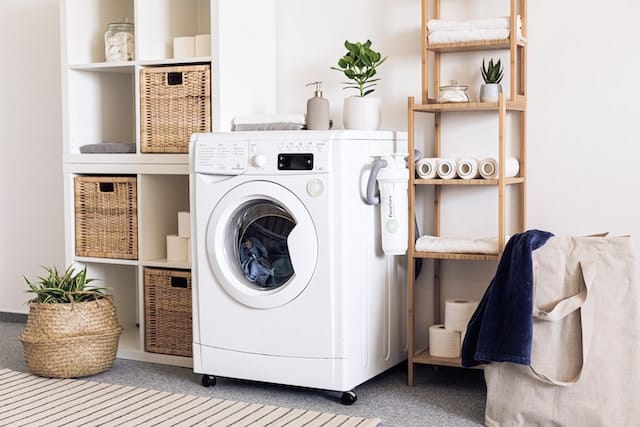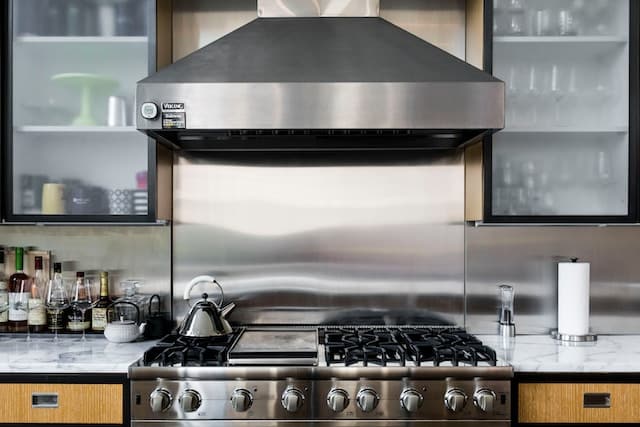When it comes to household appliances, we often take them for granted until they break down. It’s that moment when you’re in the middle of preparing a delicious meal, and your stove decides to call it quits, or when your trusty washing machine decides it’s had enough. These emergencies can be both frustrating and costly. But fear not, dear reader, because, in this blog post, we’re going to discuss preventive appliance repairs – the art of keeping your appliances in tip-top shape to avoid those unexpected breakdowns. Let’s dive right in!
Regular Maintenance Saves the Day
Imagine your car without regular oil changes and tune-ups. It wouldn’t run smoothly, and eventually, it would break down. The same principle applies to your household appliances. Regular maintenance is your secret weapon against emergency appliance repairs. Here’s what you can do:
1. Cleanliness is Key
- Refrigerator: Clean the coils and vents at least once every six months to ensure optimal cooling efficiency.
- Oven and Stove: Clean spills and crumbs as they occur to prevent burnt-on residues that can lead to problems.
- Washing Machine: Wipe the door gasket and detergent dispenser regularly to prevent mold and mildew buildup.
- Dishwasher: Remove debris from the filter and spray arms to maintain proper cleaning.
2. Check for Leaks
Periodically inspect your appliances for any leaks. This includes your dishwasher, washing machine, and refrigerator. Leaks can lead to water damage, so catching them early can save you from a major headache. If you do notice a leak, contact an appliance repair San Francisco specialist who can get to the bottom of it for you.
3. Inspect Hoses and Cords
Check the hoses on your washing machine and dishwasher for cracks or bulges. Also, inspect power cords for any fraying or exposed wires. Replace them if necessary to prevent electrical or water-related emergencies.
4. Keep Appliance Manuals Handy
Don’t toss those instruction manuals! They often contain valuable maintenance tips and troubleshooting guides. Having them on hand can help you address minor issues before they become major headaches.

Mindful Operation Goes a Long Way
Apart from regular maintenance, how you operate your appliances plays a crucial role in their longevity. Here are some everyday tips to follow:
5. Load Dishwashers and Washing Machines Wisely
Overloading these appliances can strain their motors and reduce their lifespan. Follow the manufacturer’s recommendations for load size to ensure optimal performance.
6. Use the Right Detergents
Using the wrong detergents can damage your appliances and leave you with costly repairs. Always use the detergent specified in the appliance manual to avoid problems.
7. Avoid Overheating
For ovens and stovetops, avoid overheating by preheating to the recommended temperature before cooking. This helps maintain consistent cooking results and prevents overheating-related issues.
Addressing Common Appliance Problems
Even with the best preventive efforts, appliance problems can still arise. Knowing how to address these issues can save you time and money. Here are some common problems and their solutions:
8. Refrigerator Not Cooling Properly
- Check the thermostat: Make sure it’s set to the correct temperature.
- Clean the condenser coils: Dust and debris can hinder cooling performance.
- Check the door seals: Replace them if they are damaged or loose.
9. Dishwasher Not Cleaning Well
- Clean the spray arms: Remove debris that may be blocking them.
- Use a quality detergent: Low-quality detergents can lead to poor cleaning results.
- Inspect the filter: Clean or replace it if necessary.
10. Washing Machine Not Draining
- Check the drain hose: Ensure it’s not kinked or clogged.
- Inspect the pump: Clear any debris that may be blocking it.
- Avoid overloading: Overloading the machine can strain the pump.
When to Call in the Pros
While regular maintenance and troubleshooting can help prevent many appliance issues, some problems are best left to the professionals. Here are instances when you should call in the experts:
11. Strange Noises
If your appliance starts making unusual sounds that you can’t identify or fix, it’s time to consult a technician. Strange noises can indicate serious underlying issues.

12. Electrical Problems
If you notice sparks, flickering lights, or frequent tripped circuit breakers when using an appliance, turn it off immediately and seek professional help. Electrical problems can be hazardous and should not be ignored.
13. Gas Appliance Issues
For gas appliances like stoves and ovens, any problems related to gas leaks or irregular flames should be addressed by a licensed technician. Gas-related issues can pose serious safety risks.
Invest in Appliance Insurance
Sometimes, despite all your efforts, appliances can still break down unexpectedly. In such cases, having appliance insurance can be a lifesaver. These insurance plans cover repair or replacement costs, sparing you from unexpected expenses.
Conclusion
Preventive appliance repairs may seem like extra work, but they are well worth the effort in the long run. By regularly maintaining your appliances, operating them mindfully, and knowing how to address common issues, you can avoid those dreaded emergency repairs that disrupt your daily life and drain your wallet. Remember, a little care and attention can go a long way in keeping your appliances running smoothly for years to come. So, go ahead, show your appliances some love, and enjoy a hassle-free home life!














Leave a Reply